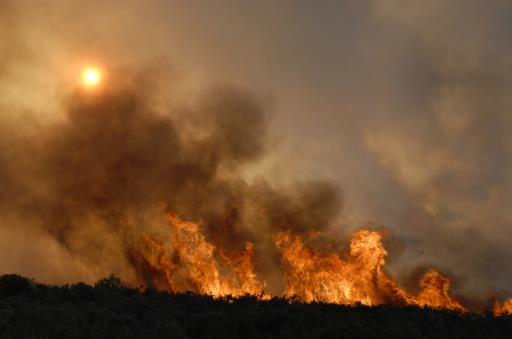
Protect Yourself from Wildfire Smoke
It is important to be aware that wildfire smoke can affect your health and to take precautions to protect yourself by reducing your exposure, especially if you are sensitive to the smoke.
Who is most at risk?
- People with pre-existing chronic conditions such as asthma, chronic obstructive pulmonary disease (COPD), diabetes, and heart disease
- Women who are pregnant
- Infants and small children
- Elderly
- Healthy people can be affected too—everyone responds differently—so listen to your body.
What to watch for
Forest fire smoke contains small particles that travel deep into your lungs when you inhale. These particles can cause irritation and an immune response, similar to those caused by bacteria or viruses. This immune response can last until the air quality improves. Most symptoms are relatively mild, and can be managed without medical attention:
- Sore throat
- Eye irritation
- Runny nose
- Mild cough
- Phlegm production
- Wheezy breathing
- Headaches
Some people may experience more severe symptoms and should seek prompt medical attention if you experience any of the following:
- Shortness of breath
- Severe cough
- Dizziness
- Chest pain
- Heart palpitations
How to protect yourself from wildfire smoke – Reduce your exposure to smoke and seek clean air:
- Take it easy on smoky days because the faster you breathe, the more smoke you inhale
- Use a portable HEPA air filter to clean the air in one area of your home
- Visit public spaces such as community centres, libraries, and shopping malls which tend to have better indoor air quality because they have larger air filtration systems
- Drink lots of water to help reduce inflammation
- If you are working outdoors, use an N95 particulate respirator.
- People with pre-existing medical conditions should take extra precautions and should keep their rescue medications with them at all times. If you cannot get your symptoms under control, seek prompt medical attention.
